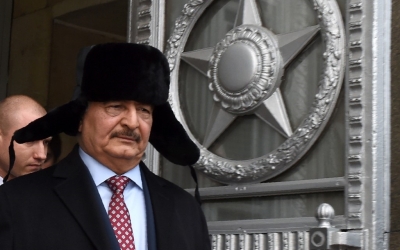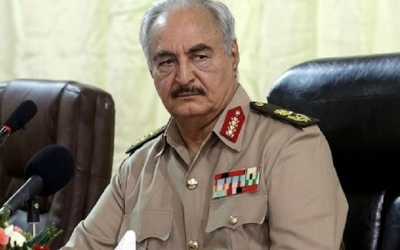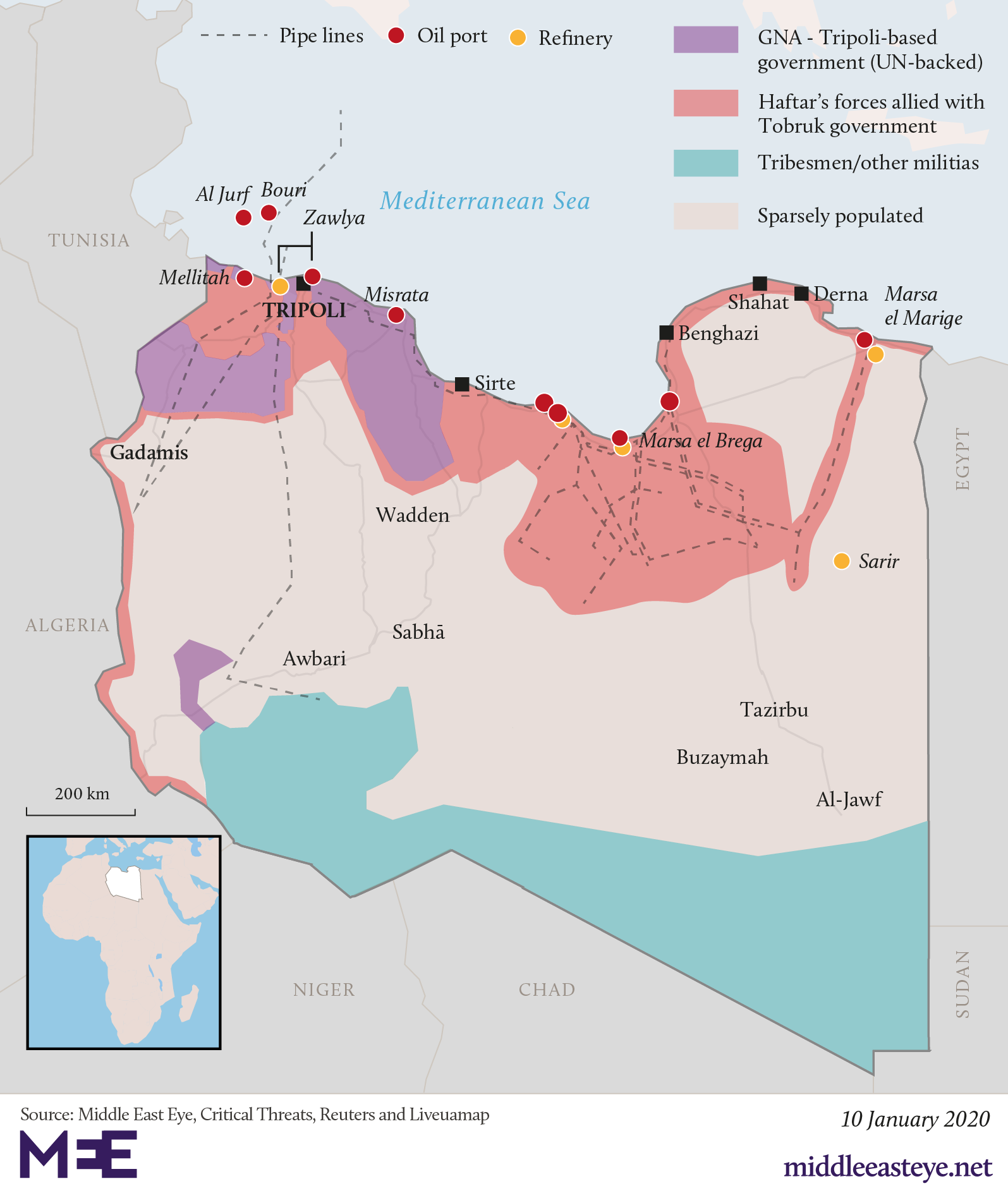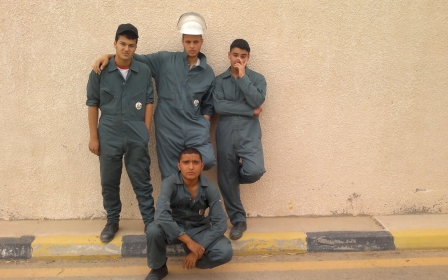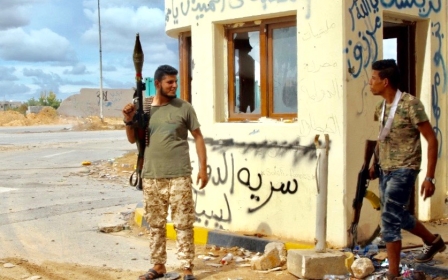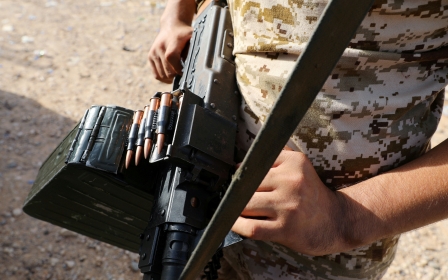Libya's Haftar 'committed' to ceasefire and peace talks, Germany says
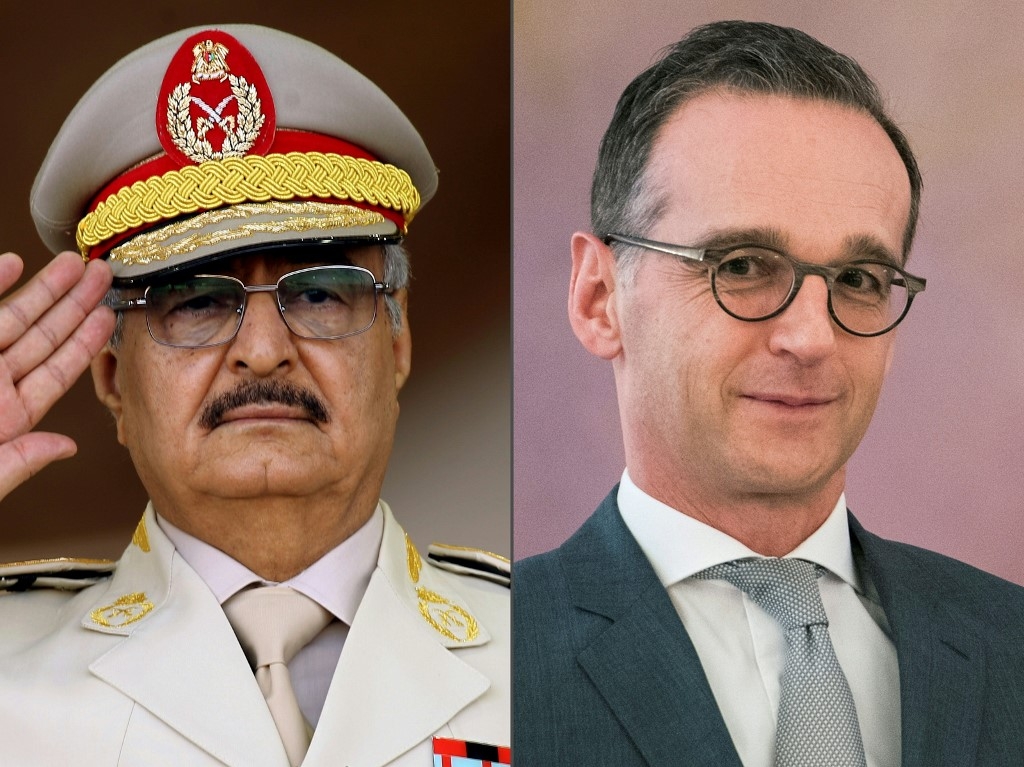
Libya's eastern military commander, who is laying siege to the capital Tripoli, is reportedly committed to a ceasefire that was brokered by Turkey and Russia last week, and will attend upcoming peace talks in Berlin, Germany's foreign minister said.
Heiko Maas said in a statement on Twitter that Khalifa Haftar, who has led a nine-month offensive to capture Tripoli, is willing to attend a conference in Berlin on Sunday aimed at addressing the conflict.
"General Haftar has signalled his readiness to contribute to the success of the Libya Conference in Berlin and is willing to participate," Maas tweeted on Thursday after meetings in Benghazi. "He has repeated his commitment to observe the existing ceasefire."
The announcement comes two days after the military commander left a highly publicised peace negotiation brokered by Turkey and Russia in Moscow without a statement or a signature.
Turkish President Recep Tayyip Erdogan warned that if Haftar continued to launch attacks on the "legitimate government," Ankara would "teach a lesson to Haftar."
Fayez al-Sarraj, head of Tripoli's UN-recognised government (GNA), said on Thursday that he would attend the Berlin conference.
Sarraj, whose GNA signed the Moscow deal, cast some doubt over Haftar's intentions.
Haftar "has chosen not to sign the agreement and asked for a delay", he said, calling that "an attempt to undermine the Berlin conference before it starts".
Haftar's office was not available for comment, Reuters said, but informed sources in the Greek capital Athens said that Haftar was expected to have talks on Friday with Greece's prime minister and foreign minister during a stopover on his way to Berlin.
Foreign influence
German Chancellor Angela Merkel welcomed the developments and said she also hopes the Berlin conference can reestablish compliance with the UN's weapons embargo on Libya.
"At the Libya conference we must above all see that the weapons embargo is adhered to again, which is basically agreed by the UN but unfortunately not honoured," she told reporters.
Turkey, which backs the GNA, said on Thursday that it was beginning to send troops to Libya.
"In order for the legitimate government in Libya to remain standing and for stability to be established, we are now sending our soldiers to this country," Erdogan told an event in Ankara.
Turkey and Libya signed two deals in November, one on military cooperation and another on maritime boundaries in the eastern Mediterranean.
Erdogan said Turkey will quickly start granting licences for exploration and drilling in the region.
"In the areas that remain between Turkey and Libya, it is now legally impossible for there to be exploration and drilling activities or a pipeline without the approval of both sides," he said.
Greece is furious at the pact between Turkey and Serraj's government as the two parties seek to map out a maritime boundary that would skim the Greek island of Crete, which Greece and allies say is contrary to international law.
Maritime boundaries may give nations the right to explore for hydrocarbon energy sources in an as-yet untapped part of the Mediterranean.
Greece says it will exercise a European Union veto on any peace pact in Libya that does not void the Turkish-Libyan maritime deal.
Pro-Haftar forces are supported by the United Arab Emirates, Saudi Arabia and Egypt. The GNA has also accused Paris of supporting Haftar and tacitly backing his assault on Tripoli, claims that French officials have denied.
Libya has been fractured and deeply unstable, with outside powers providing support to rival armed factions since Muammar Gaddafi was toppled in a 2011 uprising, which prompted the arms embargo.
Middle East Eye delivers independent and unrivalled coverage and analysis of the Middle East, North Africa and beyond. To learn more about republishing this content and the associated fees, please fill out this form. More about MEE can be found here.


